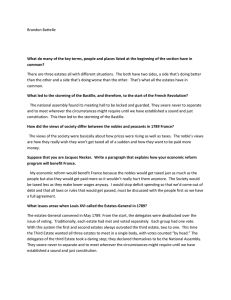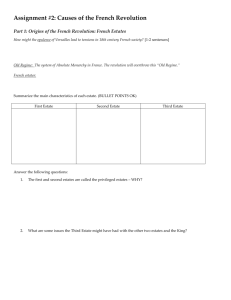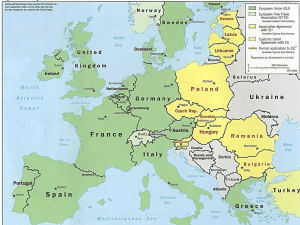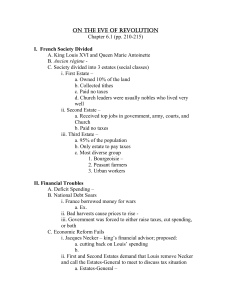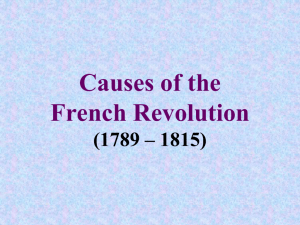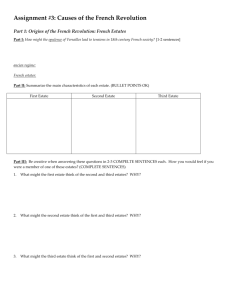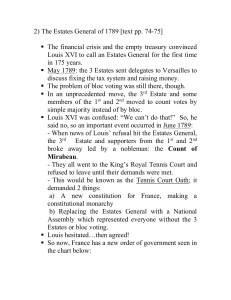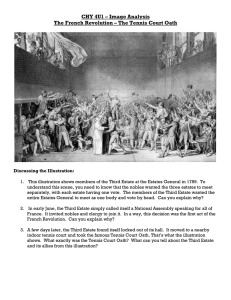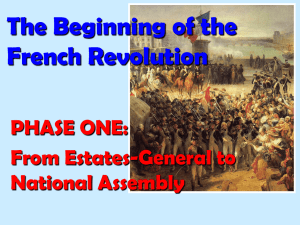File
advertisement
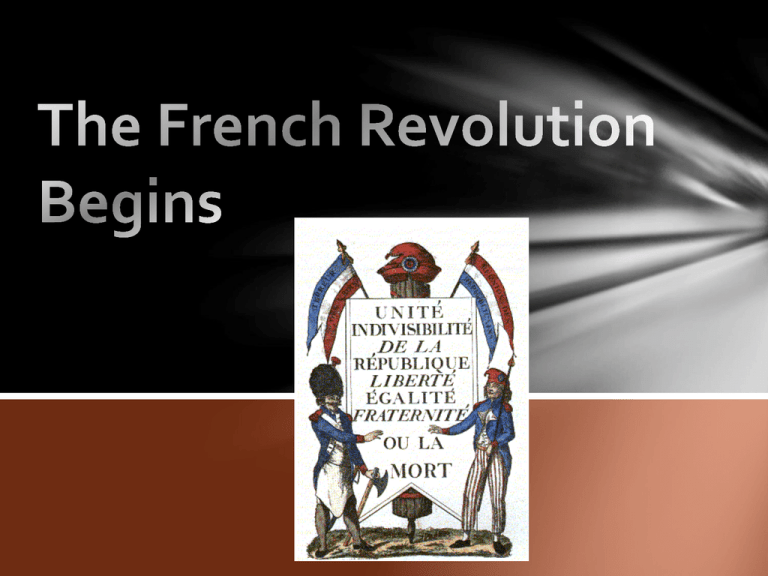
Causes of the French Revolution 1) Absolutism vs. the Enlightenment During the 1600s and 1700s, French kings gained total power over the country’s government This conflicted sharply with the Enlightenment philosophy of a government whose purpose was to protect individual rights 2) Social and Political Stratification Power in French society was concentrated in the the First and Second Estates No matter how wealthy a commoner became, he could never move up the social ladder First Estate Second Estate Third Estate Causes of the French Revolution 3) Severe Economic Crisis in the 1770s and 1780s: a) Rapid Inflation and High Taxes decrease in trade and an economic slowdown b) A series of Bad Winters led to Crop Failures bread prices skyrocket; peasants face a real possibility of starvation c) High Public Debt caused by Wars and the opulent royal court The Estates General Meets -Desperate for money, King Louis XVI attempted to impose a new tax on the nobles and clergy -Nobles: force Louis to call a meeting of the Estates General (the French “legislature”) -Spring, 1789: King Louis caves in to the nobles’ demand, and calls the Estates General to meet for the first time in 175 years Voting Rules 1) Representatives of each Estate meet separately and decide on their vote 2) Each Estate gets one vote The Estates General The Third Estate Revolts -Immediately after the Estates General opened, the delegates of the Third Estate withdrew and formed the National Assembly -National Assembly—declared themselves the legitimate representatives of the French People, and began passing laws in their name -The Tennis Court Oath—the Third Estate delegates were locked out of the Estates General meeting; -They met by themselves in an indoor tennis court, and swore an oath to not disband until they had written a French Constitution Revolution in Paris -Word of the events at Versailles quickly reached the capital city of Paris -The urban poor took to the streets, staging demonstrations in support of the National Assembly -Some people/mobs began to arm themselves -July 14, 1789—a mob storms the Bastille Prison; killing guards, freeing prisoners, and taking weapons and ammunition -”Bastille Day” is the symbolic beginning of the French Revolution

